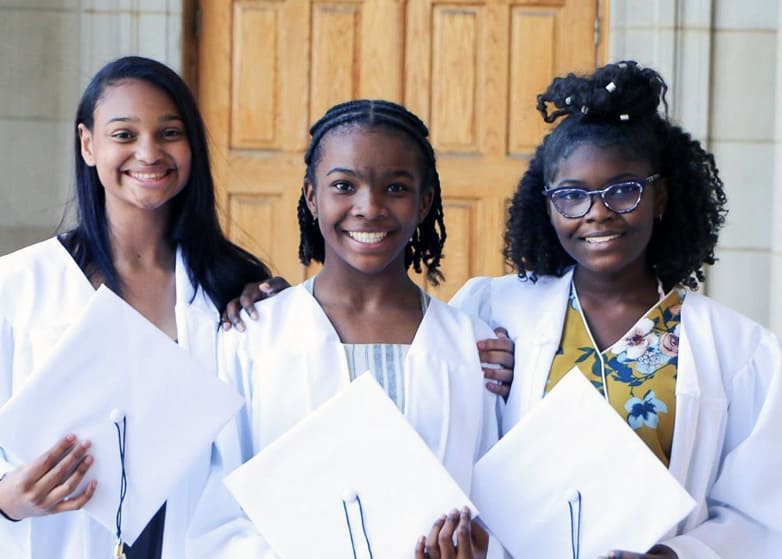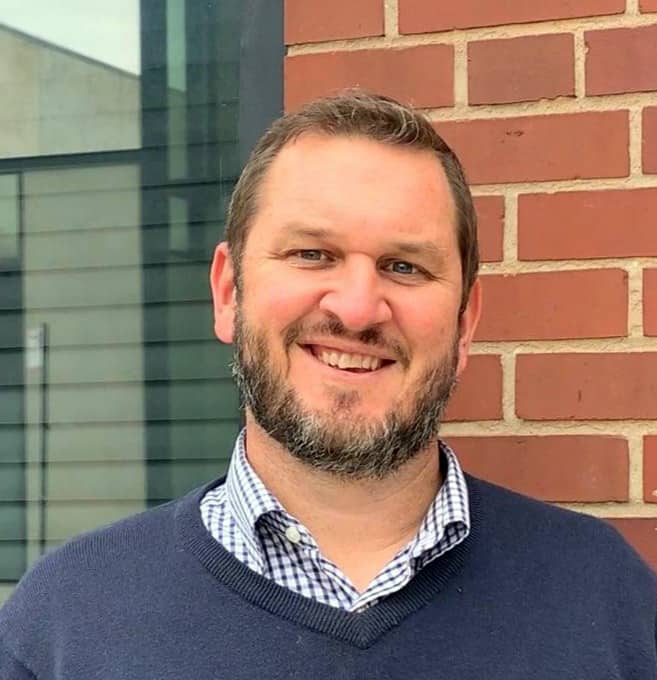Bright Promise Fund exists to strengthen and support a network of fifteen unique, Christ-centered schools in neighborhoods across metropolitan Chicago. These schools are rooted in the conviction that the Earth is the Lord’s and everything in it, equity in access is essential, educational options are inherent to dignity, and diversity is a gift that strengthens a child’s capacity to flourish in this world. This is also an acknowledgement that throughout our young history in the United States, Christian education has too often been economically inaccessible and racially, ecumenically and culturally homogeneous in urban and suburban landscapes. In listening to the voices of the following four leaders, as they introduce us to their schools which are part of Bright Promise Fund, we hope you hear joy, hope, justice, lament and love as each person shares why their school exists in the neighborhoods they serve. These schools belong to the city.
Cambridge Classical Academy
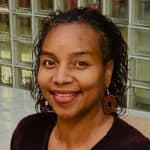 Name: Pernicia Smith-Johnson
Name: Pernicia Smith-Johnson
Location: 4622 S. King Drive, Chicago, IL
Enrollment: 43
Cambridge Classical Academy (CCA) was founded on July 27, 2017, for students who would change the world. Our mission has always been to provide students with the tools for success through classical education. Classically educated students are afforded a long tradition of truth-seeking instruction of key subjects such as liberal arts, history, mathematics, and science. We encourage our students to solve problems that are similar to those they may face in the world. CCA uses the unique approach of classical education to teach students how to think critically and wholistically. We are able to accomplish this by addressing the needs of each individual child, meeting each child exactly where they are.
Our methodology to delivering the classical approach could be classified as hands-on (where the best learning takes place), minds-on (critical thinking), and hearts-on (supporting spiritual growth). We understand that classical education is not a common approach but wholeheartedly believe that it is the best approach to education. By integrating the Marva Collins methodology along with a Socratic approach to instruction, our students thrive. Thus, CCA exists for families who are looking for fluid instructional methods that cater to various learning styles, a faculty and staff that is committed to partnering with parents, and an environment that teaches to the heart, mind, and spirit of the children.
Cambridge Classical Academy is made up of families having many economic backgrounds. Approximately 85% of our families receive tuition assistance. The assistance reduces the tuition costs by 15-70%. Our tuition is significantly lower than the actual costs to educate each child. Because we have not had funding to offset the total amount of assistance we have awarded to families, we have had to make sacrifices that allow us to continue to provide a quality education that is affordable. We are working on building partnerships with donors that will help make the sacrifices less burdensome.
There are many benefits to being a Christian school in our community.
- CCA is the only African-American founded Christian school in Bronzeville.
- CCA is located in a community where discipleship is desperately needed.
- CCA has the ability to teach our students just how much they are loved by God without restrictions, without excuse, and without delay.
- CCA is in a great position to bring light into a community that is surrounded with darkness.
- What better way to add to the Kingdom than through His children! Deliverance is the children’s bread.
 Although some of our students do not come from Christian homes, the challenges we face have absolutely nothing to do with Christianity. CCA is in a great location. But even with tuition assistance, many families from the community cannot afford the tuition. We know that children in the community would greatly benefit from a classical education if they could afford it. A CCA education could ultimately change the trajectory of their lives. Due to the high demand for tuition assistance, we have had to reduce or eliminate resources and training which is also a challenge. Our teachers could benefit from both but it is a challenge with current funding. We would like to provide our students with additional programming (after school activities). However, low enrollment and families with the ability to pay full tuition has limited our ability to do so.
Although some of our students do not come from Christian homes, the challenges we face have absolutely nothing to do with Christianity. CCA is in a great location. But even with tuition assistance, many families from the community cannot afford the tuition. We know that children in the community would greatly benefit from a classical education if they could afford it. A CCA education could ultimately change the trajectory of their lives. Due to the high demand for tuition assistance, we have had to reduce or eliminate resources and training which is also a challenge. Our teachers could benefit from both but it is a challenge with current funding. We would like to provide our students with additional programming (after school activities). However, low enrollment and families with the ability to pay full tuition has limited our ability to do so.
The work that we do is extremely important to the church. In Revelations, the church was identified as the bride of Christ. We know how much Jesus loved His bride. We are His bride because we are the Church. We (the Church) are loved by Jesus and should have the same love towards Him and those He loves. According to John 21:14-17, our responsibilities include feeding His sheep. If we truly love Jesus, we are responsible for enriching the lives of our students. If we truly love Jesus, we are responsible for keeping His commandments–the greatest being to love the Lord with all our heart, with all our soul, and with all our mind. If we approach all that we do with Jesus and His love in mind, we will always be reminded of the importance of our work.
Cornerstone Academy
 Name: Jim Wilkes
Name: Jim Wilkes
Location: 1111 N. Wells St., Chicago, IL
Enrollment: 30
The mission of Cornerstone Academy is to take on students who have tried another high school first but not have it work out, and give those students a second chance to finish a diploma program—in a private, Christian school setting.
As a mission we mostly take on low-to-moderate income level students who typically would not be able to afford a private Christian school. Most of our students are a bit scarred by school experiences (or life experiences in general). It is our particular work to reflect the kindness of Christ by offering a second chance to those students to succeed at school. We, as Christian teachers, enjoy fanning into flame academic and spiritual sparks.
Why we exist is best told through the accompanying picture and stories. Take, if you would, a look at the picture below. It is of Cornerstone Academy graduates from June 2017.

One of the girls pictured, just the prior year, lost her older brother to gun violence. Someone broke into the family house and shot him. This girl emotionally shut down. She was sent to Cornerstone to help heal. She needed someplace small and supportive. Within nine weeks, however, the teachers became concerned that she was unreachable. But her mother (a wonderful woman) said to us, “No, she’s inside somewhere. Be patient.” And she told her daughter to cooperate with the teachers, talk with people, and grab on to life again. Some spark grew in her over two years.
One of the boys pictured greatly struggled with depression (and was even briefly hospitalized while with us). He originally “caught” depression like you catch blue eyes–pure genetics. His mood swings were so deep he really did not think he could ever finish high school. He, too, was sent to Cornerstone Academy to regain some hope. His sleep patterns were miles off normal; he had an empty tank of ambition; and he had some dangerous recreational habits. But he was immensely likable–friendly, funny, and kind. One girl always called him “Best Friend” as a name. “Hey, Best Friend, did you read last night’s homework?” A spark grew in him as well.
Also pictured here is a young lady who sustained five bullets to her torso. She was shot on a February afternoon in 2015, close to a Northside McDonald’s. When Mayor Rahm Emanuel heard about her story, he visited her at Children’s Hospital. Subsequently, from a referral, she too found Cornerstone Academy. She was looking for a place to recover and graduate. And within her a spark also grew.
We hope, by God’s grace, to help these students get around their “mountains” and graduate. These stories are fairly dramatic. Many are not as colorful, really. The school takes on the colorful and the bland struggles–they’re all important as we grow up and learn about life and the God behind it all.
These students are all still standing. Some spark has grown within them, as they keep pushing. Or—truth be told—as they all kept getting pushed . . . by Someone.
Cornerstone Academy teachers are happy to be part of God’s hand, fanning sparks into flames.
Regarding “equitable access to quality education,” in a large city there will always be students who do not “fit in” at the high school in which they are enrolled. Cornerstone Academy, then, becomes part of the fabric of Chicago’s educational options. If you need something “small,” then that is us (30 students per year). If you need something “Christian” that is affordable and accessible to your child who was just removed from his or her former school, we are that safety net option.
To make the school affordable, we charge tuition on a sliding scale. We take 9% of the family’s adjusted gross income as the tuition mark. We will charge no more than $7,000 per year, and charge no less than $1,400 per year.
The benefit of being a small private Christian high school in Chicago is, for teachers, the delight of creating one’s own curriculum. We follow state standards and AdvancED guidelines, but we add things like the study of the Bible. We also require that each student successfully hold a job for three months before they graduate (this is a great addition to the curriculum for low-income students!). The challenge of being a Christian school, working with low-income students, is raising enough money. Tuition covers about 20% of our bills, and we raise the other 80%.
This work of Cornerstone Academy is important because, as Catholics rightly say, God has a “preferential option for the poor.” It is a pattern found in the Bible. Our students are low-income students, and they are not strong students. But they have hopes, dreams and unused talents. And they are young and shapeable. God leans towards the weak, the broken, the disenfranchised. So “safety net schools” like Cornerstone Academy look like the gospel story. They are “good news to the poor,” they “redeem people’s lives from the pit,” and they help fulfill the plea of Isaiah, “Comfort ye, comfort ye My people.”
Pul Tak Christian School
 Name: Bonnie Ho
Name: Bonnie Ho
Location: 2301 S. Wentworth Ave., Chicago, IL
Enrollment: 150
Pul Tak Christian School (PTCS) exists to equip young learners academically and spiritually to be future leaders for God’s Kingdom. Our vision is to see children rise to their potential and succeed in all spheres of life with joy and strength of character.
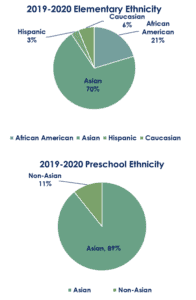 PTCS was founded by the Chinese Christian Union Church in 1953 as a preschool with the mission of reaching out to the non-believing community. For nearly 70 years our mission has remained the same. Located in the heart of Chinatown within urban Chicago, PTCS serve Chinese immigrant families adjusting to their new culture and preparing their children for elementary education.
PTCS was founded by the Chinese Christian Union Church in 1953 as a preschool with the mission of reaching out to the non-believing community. For nearly 70 years our mission has remained the same. Located in the heart of Chinatown within urban Chicago, PTCS serve Chinese immigrant families adjusting to their new culture and preparing their children for elementary education.
 With great respect from the community, the school has earned an open door to teach its beliefs. PTCS has been and will continue to be an arm of the Church reaching the non-believing world with the love of God and the gospel of Jesus’ saving grace. Starting from day one, newborn babies are ready to learn. At age three 80% of their brains are developed, and at age five 90% of their brains are developed. Much the same way, the spiritual formation of a child also starts at a young age. If we invest in children’s formative years, we can change the trajectory of the children. If we invest in Christian education today, we will change the future tomorrow.
With great respect from the community, the school has earned an open door to teach its beliefs. PTCS has been and will continue to be an arm of the Church reaching the non-believing world with the love of God and the gospel of Jesus’ saving grace. Starting from day one, newborn babies are ready to learn. At age three 80% of their brains are developed, and at age five 90% of their brains are developed. Much the same way, the spiritual formation of a child also starts at a young age. If we invest in children’s formative years, we can change the trajectory of the children. If we invest in Christian education today, we will change the future tomorrow.
Chicago West Side Christian School
 Name: Mary Post
Name: Mary Post
Location: 1240 South Pulaski Road, Chicago, IL
Enrollment: 140
Chicago West Side Christian School (CWSCS) has provided faith-based education on Chicago’s west side for fifty years. It began because parents determined they wanted Christian education in their neighborhood for their children. Its mission is to equip students intellectually, spiritually, socially, emotionally and creatively so they are equipped to lead and serve as Christians in the world. The school serves 140 students from preschool through eighth grade. The student population is 84% African American, 11% white, 3% Latino, and 2% two or more races. Over 60% of the families qualify for free or reduced lunches. Both unchurched and churched students attend.
Families of many income levels participate at CWSCS because of the school’s low-cost tuition and robust scholarship support. Tuition charged is 50% of actual cost; in addition, 60% of families receive additional assistance. We work in partnership with families, donors and scholarship granting organizations to ensure that families desiring Christian education can have access at an affordable rate. Many families assume private education is beyond their reach. We want them to know they are welcome to be part of our school community and that we will work to provide resources to make that happen. We are thankful for God’s remarkable provision over the years.
The benefits of serving as a Christian school in the city are many!
- We have the joy of guiding children to love God and His story.
- We get to live out the value that all children are deeply loved by God and capable of experiencing growth, success and a developing sense of purpose as they participate in a quality education shaped by a biblical worldview.
- We can provide amazing, enriching experiences for our students because we are in a city that is rich with museums and cultural resources.
- Though vacant lots dot our neighborhood, we have been able to transform several of them into usable space by creating play areas, planting trees, developing vegetable gardens and setting up outdoor classrooms so our students can enjoy nature as part of their learning and play.
There are challenges as well.
- Because many students come to us below grade level, our teachers work diligently to help them gain skills and confidence in their learning. However, additional support would be helpful, and we need to continue to explore ways (and funding) to make that happen.
- Many families have insecure housing or finances which can impact their long-term involvement with the school. Because of this, we have a heightened awareness of seizing the moment to do all we can do, knowing that our time to work with the child may be limited.
- Our students of color and their families experience the effects of systemic racism daily, and the neighborhood we are in has been underserved for decades. As a school, we want to ensure that our staff is representative of the students we serve and that we have equity in our policies, curriculum and school culture. Though we are committed to this, we also recognize that there will be much hard work ahead to achieve that goal.
At the church, we must look for every opportunity to communicate the good news that God loves us, and that He calls us to care deeply about His world and everyone in it. Christian education provides a five-days-a-week, forty-weeks-a-year platform to dig deeply into that good news, to see God’s hand at work in the world and to develop and promote biblical knowledge, skills and discernment needed to be able to lead and serve to make a difference in the world as Christians. Building Christian community and creating a place where students AND their parents can find a place of belonging, of acceptance, is a core value for the school. Families who experience this belonging get a taste of what it can mean to belong to God, to be a part of His beloved community. Churches who value the work of Christian schools have a wonderful opportunity to offer another circle of support for families, to demonstrate their commitment to biblical justice in the realm of education and to be a witness to and an agent of God’s love and care for the community and all within it.
Christian education isn’t an antithesis or “safe alternative” to any other form of education, but rather it is an essential institution embedded in communities for the sake of the common good.
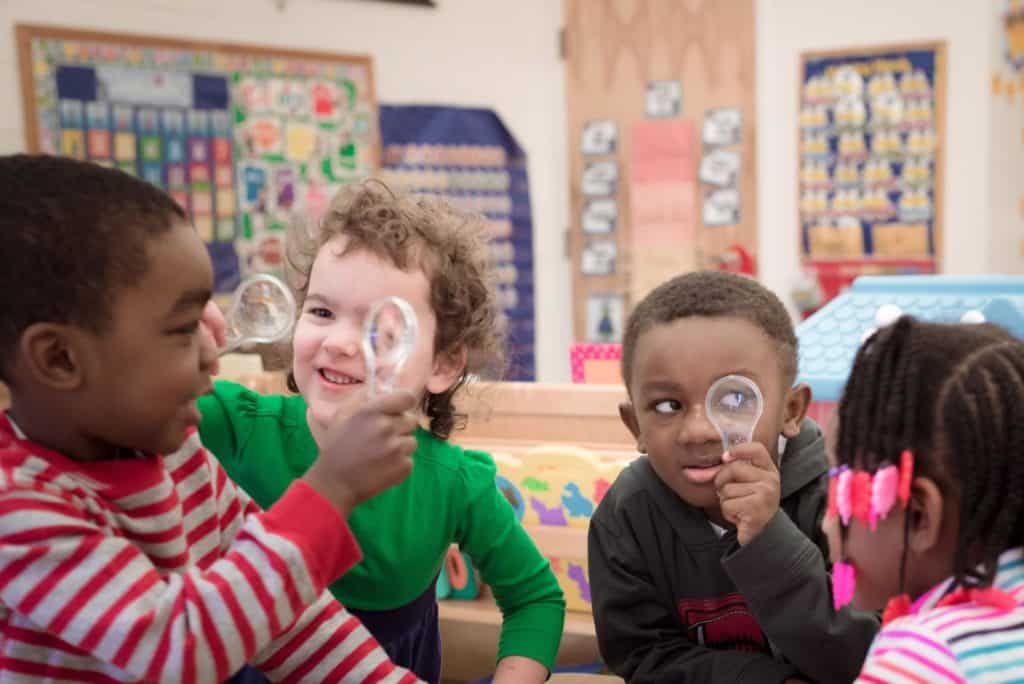
Conclusion
I recently read an article explaining there is evidence that trauma in adult mice may negatively alter the DNA of offspring, but continued exposure to positive experiences may reduce or reverse the impact of that negative tweak in the DNA.1 The residual impact of sin from the very first has negatively impacted every aspect of the original good creation. However, sustained exposure to the embodied reality of God’s love, made complete in the redemptive work of Christ for His children and the whole of creation, has not only the potential but the very real effect of changing these negative markers that we see within and all around us.
This is the joy and the responsibility we have as the church, active and engaged in our cities across the United States and the world. Cities are often marked by the deepest cuts of sin, but they are also the greatest evidence of the Kingdom of God breaking in, mending, and making all things new.
Christian schools belong in the city to bear witness to this great story of the Kingdom now and not yet, to give voice to the pain of injustice, to prophetically imagine new structures of leadership and shared power, to provide community, purpose, and identity infused with hope, to create spaces for wonder and creativity as co-conspirators in the work of redemption so the generational marks of sin are not passed from this one to the next. In this way, Christian education isn’t an antithesis or “safe alternative” to any other form of education, but rather it is an essential institution embedded in communities for the sake of the common good.
